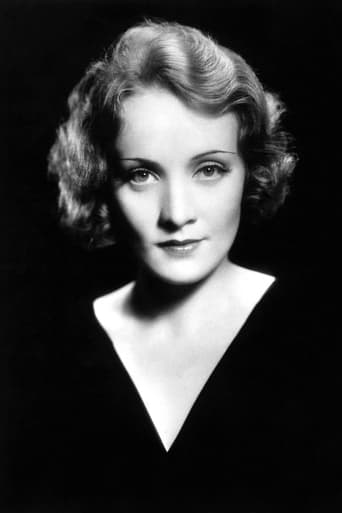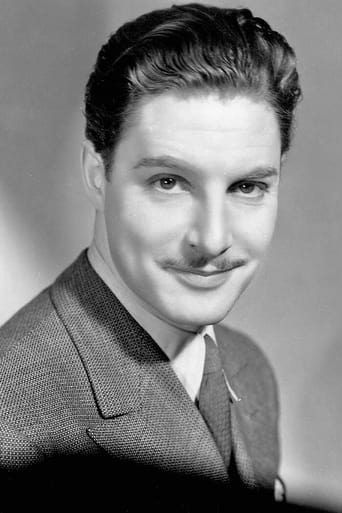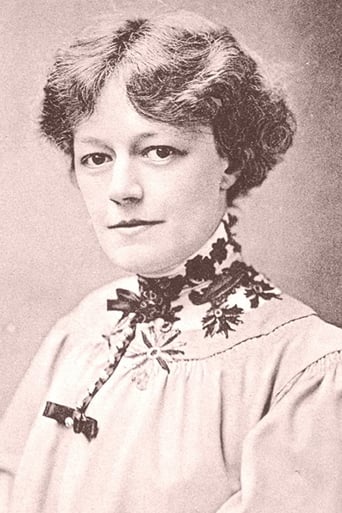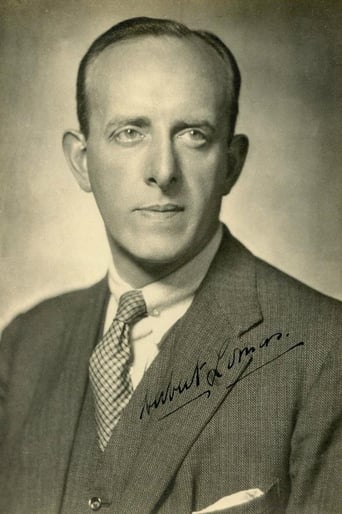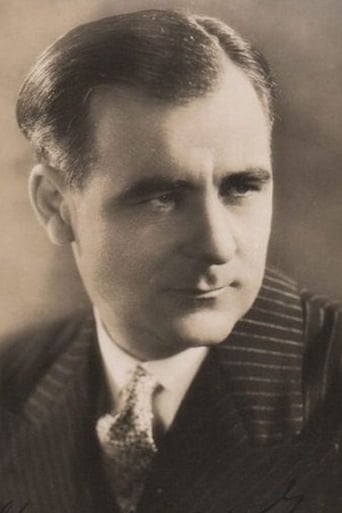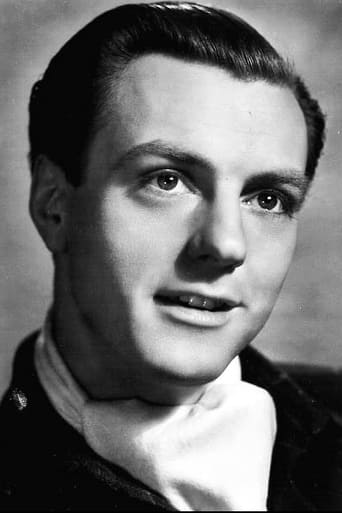CommentsXp
Best movie ever!
Crwthod
A lot more amusing than I thought it would be.
Afouotos
Although it has its amusing moments, in eneral the plot does not convince.
Luecarou
What begins as a feel-good-human-interest story turns into a mystery, then a tragedy, and ultimately an outrage.
tomsview
This is a pretty crazy old movie, which used to appear regularly on television in the late 1950's.It would be easy to make fun of the overwrought plotting in the film and the rather chirpy, "Boy's Owns" performance of Robert Donat as A. J. Fothergill, which sees him stiff upper lipping his way through labour camps, mass migrations and firing squads. However the film has its moments and although shot entirely in pre WW2 Britain, it captures a sense of the chaos and dislocation of the Russian Revolution.A. J. Fothergill, an English Journalist in Russia, ends up working for the British Secret Service at the outbreak of the revolution. Posing as a Bolshevik he falls in love with Russian aristocrat Alexandra Adraxine (Marlene Dietrich) who is fleeing for her life. As they head to safety they encounter characters on both sides of the civil war: reds and whites.It is in the subplots where the film captures a sense of a world turned upside down. The couple meet people unable to grasp the new role history has trust on them; the deranged station master announcing the arrival of non-existent trains or the commissar who falls for Marlene's character at first sight.If ever a film captured the mystique of Marlene Dietrich it is this one. In every scene, whether in full regal glory at a ball, trudging through the mud or snow, even dressed as a man, key lighting accentuates those cheekbones and casts the little butterfly shadow under her nose. She glows in every scene.The British tone to the whole thing takes some of getting used to and is more obvious than in Lean's "Doctor Zhivago" where the cultural transplanting is subtler. In both films, an intense love story plays out against the same turbulent historical backdrop."Knight" views the communists and the anti-communists in equally grim terms with summary executions all over the place. The rattle of the machine guns used in the executions is a motif throughout the film.It's a bit creaky nowadays, and is unlikely to be on anyone's top ten, however "Knight Without Armour" has an indefinable mood, and a couple of scenes that stay in the memory.
MartinHafer
Some of my favorite films of the 1930s and 40s were based on James Hilton novels, so when I saw that "Knight Without Armor" was based on one of his books, I was thrilled. After all, he was responsible for such wonderful films as "Lost Horizon", "Goodbye Mr. Chips" and "Random Harvest" (though this last one IS quite a bit different from his book). Then, when I saw the wonderful actor Robert Donat starred in it, I knew I had to see it! The movie begins with Donat agreeing to spy for the British on the Revolutionary rumbles within Russia just before the World War I began. However, soon his cover is blown and he is arrested and sent to Siberia! Several years pass in a prison camp until he ultimately is liberated by the Communists---during the height of the Revolution in 1917.Eventually Donat meets up with the Countess (Marlene Dietrich) who is determined to make her way to safety out of the new Soviet Union. Much of the film is spent with the two of them sneaking across this huge country towards freedom and it comes off a bit like "It Happened One Night"--just without all the comedy (comedy was, understandably, not something the Revolution was known for, by the way). And, like Gable and Colbert, romance soon blossoms. But the way out is treacherous and you'll just have to tune in yourself to see how it all unfolds.As usual, Donat is very good--believable and not especially 'flashy'. As for Dietrich, I am not a huge fan of her films, but she's very good here as she ditches her usual glamorous image and it suits her. Now if only she had non-penciled in eyebrows, she's have been terrific! They just looked odd AND hiding among the peasantry wasn't very believable with the fashionable but creepy plucked brows. The direction was very nice--with a soft touch and lots of excellent touches. It was a very nice looking film from start to finish--with a rather brutal scene near the end involving a firing squad.By the way, I think tonight was the first time Turner Classic Movies showed this rare film. However, I noticed that the film seemed to play at a slightly slower speed than it should. The sound seemed okay, but the actors moved at a noticeably slower than normal pace. I am not sure how this happened, as all sound films run at 24 frames per second and don't vary like a silent film (which runs anywhere from 16-22 fps). Isn't there some way this can be corrected?!
Igenlode Wordsmith
Casting Marlene Dietrich (a coup achieved only after Donat's own two preferred actresses proved unavailable -- he was supposed to have the right of veto on the leading lady) may have been a publicity coup for Alexander Korda, but to be honest I'm not sure it did the film any favours.With Dietrich on board and then Donat so ill the start of the film had to be shot around him, the part of the Russian Countess was massively pumped-up, causing the running time to go seriously over-length. Supposedly about two hours of material then had to be cut out, a process which is most evident towards the beginning of the film where passing time is skated over very unevenly.Secondly, scenes featuring Dietrich have a tendency to feature long, loving close-ups of her face at the expense of pacing, plausibility (her make-up never falters) and acting -- Donat's own close-ups are reaction shots in which we see a shadow of significant emotion or realisation, but Dietrich's might as well be promotional stills for all the expression she gets to demonstrate. (Ironically she also comes across as too worldly and sophisticated for the part, certainly in the opening scenes: I had her pegged as an unmarried daughter/companion in her twenties from her racetrack appearance, and was jolted to subsequently find that the character was supposed to be a teenage débutante!) Dietrich was far better in her earlier Russian role of "The Scarlet Empress", Catherine the Great: here she is little more than a doll to be pushed around and emerge in an improbable china glow.It is perhaps because of this that I can't see any real chemistry between the two characters: Donat shows chivalry and protectiveness throughout, but his subsequent protestations of love (and her requisite responses) felt to me very arbitrary and artificial. A sudden excess of calling one another 'darling' and kissing are not the same thing as demonstrating any actual feeling between the characters, unfortunately, and the script feels forced in this respect.Where the film does shine -- or at least engross - is in its depiction of the scrambling post-revolutionary war of brutality and counter-brutality, and the hordes of hapless refugees caught up between the two. There are a lot of executions in this film; then just when the audience is keyed up for another, the hero makes his escape (courtesy of an unexpectedly schoolboy knockdown blow) and the others scheduled for execution take advantage of the confusion to attempt to turn the tables. Subconsciously I suppose we expect a morally uplifting outcome, which makes the brutal bayoneting that follows all the more shocking.As others have said, the scene where the Countess wakes up to find her entire house deserted -- save for one peasant woman at the riverside who flees at the sight of her -- is a powerful one, as is the moment when she faces down the mob... unsuccessfully. I did find the big reveal of the line of soldiers suddenly coming over the brow all around the horizon to be a little too cinematic for its own good, though: shades of Westerns throughout the ages, in a scene that's more "Tale of Two Cities". (My other problem with this scene is that, again, Dietrich displays almost no emotion of any kind and just stands there in soft-focus looking blankly beautiful.) Sections of this film are very good, but they are mostly not the sections featuring the character of the Countess; and certainly not those using her as a glamour object, which tend to be rather banal. I can't help suspecting that what I'm seeing is the bones of the original novel showing through the star overlay.
lora64
Although the plot may seem thin I consider it a very absorbing film - lots of drama and action. It is a movie of its time so modern expectations are out of place. Marlene Dietrich shines in this one of course but I view it because Robert Donat is there also. It's my opinion that their screen kiss is one of the finest on record, very touching and tender. All in all, well worth the popcorn!

